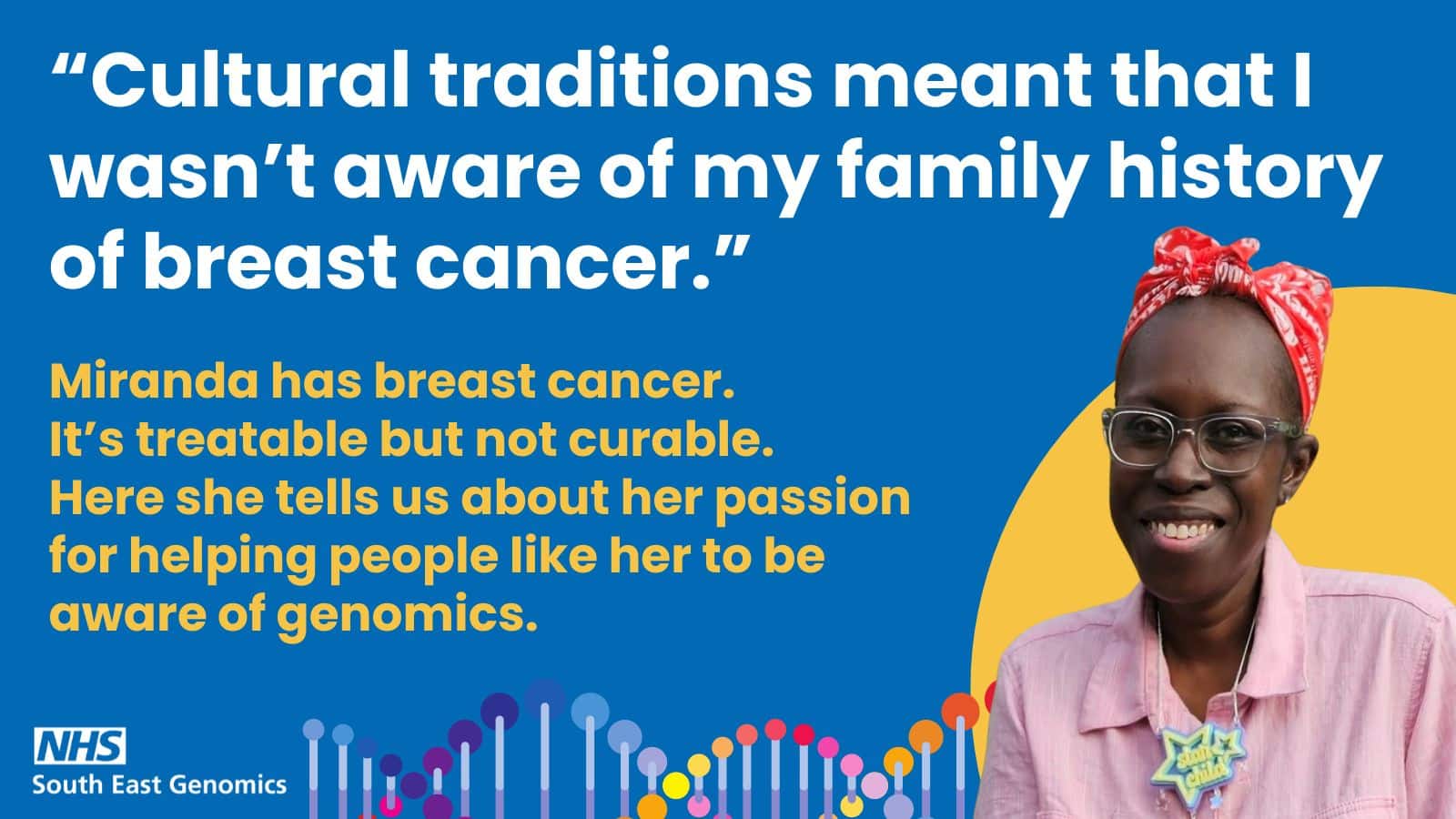Cultural traditions meant that I wasn’t really aware of my family history of breast cancer.

Miranda was diagnosed with breast cancer when she was just 32 years old. Both her Aunties, who lived in Ghana, had also had breast cancer relatively young, but cultural traditions meant that illness and death aren’t openly talked about. Geography also made it hard, and it wasn’t until after her Aunt Vera died that Miranda’s family discovered that she was ill and had breast cancer.
Because Miranda was young and there were unanswered questions about her family history, her Doctors suggested that she have genetic testing. The aim of the test was to determine if Miranda had any genetic changes that could increase her risk of developing breast cancer. The tests came back negative which meant that she hadn’t inherited the genes that can cause up to 10% of breast cancers.
Three years later, the cancer returned.
This time it had spread to her liver, the fluid around her lungs and there were traces in her bones. Miranda’s cancer was now treatable but not curable.
“I had debilitating headaches. When I was 37, they rushed me for a Head MRI and found that I also have 4 brain mets.”
During this time, science had progressed so much, that new genetic tests were now available that hadn’t been when she was first diagnosed. The new tests were looking for different genetic changes that could provide answers about the cause of Miranda’s cancer.
Whilst waiting for her results, Miranda became more and more interested in genomics and started to proactively learn and seek more information about cancer and genomics.
“I learnt so much. It was like a whole new world of knowledge opened up to me. One of the biggest facts I learnt is that our genes can predispose us to certain illnesses. Like the research that shows that black men are twice as likely to get prostate cancer than other men. That’s important knowledge that everyone needs to know!”

Miranda has used her new interest to benefit other people.
“I want to use my own experience of cancer and genetic testing to help other people. I’m also passionate about inclusion and making sure everyone has a voice.”
That’s why Miranda has joined patient voice groups at the Royal Marsden, Cancer Research UK and the South East Genomic Medicine Service. By working with these groups, she is helping to ensure their services are listening to people like her and making improvements as a result.
“My role with the South East Genomic Medicine Service is to help them think about how to ensure everyone gets equal access to genomic testing.”
Knowledge is power
Miranda’s most recent genetic tests didn’t provide any answers about the cause of her cancer, but she remains positive.
“I’m still looking for answers, but research is moving so quickly, that in another few years there will be more genetic tests available.”
In the meantime, Miranda is excited about the developments in preventative medicine. There are currently trials taking place that may enable people to understand their likelihood of developing cancer. This knowledge then enables them to make lifestyle changes and in some cases preventative surgery.
“I didn’t have that option, but I’m working hard to ensure other people do regardless of their age, ethnicity, geography or sexuality.”